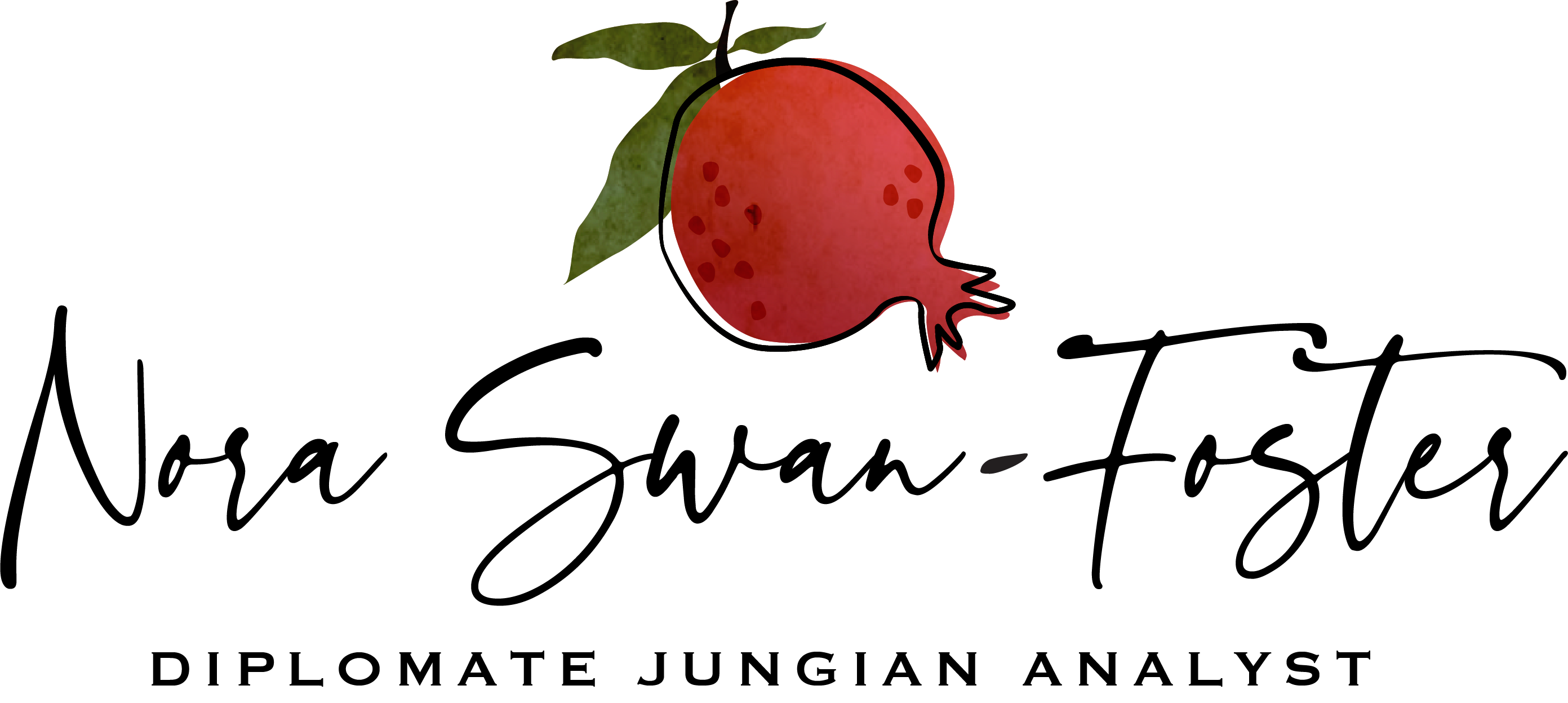The following reasons are why people seek psychotherapy or Jungian analysis:
- A desire to live a more symbolic and meaningful life.
- Personal growth and an expansion of consciousness
- Feeling stuck in life or not living up to your hopes or expectations
Trauma resolution and post-traumatic stress management - Gaining insight and understanding about historical events so as to make changes for the future
- Feeling emotionally or physically drained or unmotivated
- Support for grief related to any kind of loss, change, or childbearing related issues
- Creatively or spiritually flat and longing for something more
Dreams that are repetitive, troubling, or numinous
Making the calls to find the right Jungian analyst or psychotherapist is often the hardest, but once we take the step, we find our way. It is important that we not settle with just any therapist, but to make sure we find the right fit. This is something I value and will encourage. In fact, I may even give you other referral sources so you can explore what is best for you. If you want to initiate contact with me, I prefer that you first you will call and enquire about openings for therapy in my practice (303-440-4000). I sometimes have a wait list so it is important to know that entering analysis or psychotherapy with me may not be immediate. When you call, please leave some good times for me to reach you. It is often not easy to return calls during the day when I am in sessions, but I will do my best to contact you and set up a time for us to talk further. When we speak by phone, I am happy to answer your questions and to better understand why you called and if I can be of help. I typically spend about 20-30 minutes talking with you before we decide if an introductory session is the right choice for you. If it is, we will schedule an appointment.
Although many therapists offer a free introductory session, I do not. Speaking by phone prior to meeting to answer any of your questions typically resolves any initial concerns and the individual is ready to try a session. If you decide to schedule a session you will have an opportunity to work with a dream or use art materials. You will leave with a good feeling about how I work and how we might work together. I will offer suggestions for further work, some reflections on a situation or concern, and a new expanded view of your situation. Whether or not you choose to schedule another appointment is entirely up to you. Having one appointment does not mean you must schedule a second one unless you are ready to do so, and we agree that the fit is right for us both. If you decide to try future sessions, we will confirm our work together after three or four sessions.
Many people think that they do not have dreams, however, it is actually the process of learning how to remember them. We can discuss how to support your dreaming process by having a recorder, or pen and paper beside your bed so as to attempt to catch or remember just a few words or images. We will also discuss the best way for you to present your dreams in your sessions. It’s very helpful and time consuming if you bring your dreams already typed up with two copies so we can work with them together.
Dreams are not necessary for you to participate in Jungian analysis. There are many other ways to develop a relationship with the unconscious. For instance, often times our daily experiences offer enough imagery and feelings for us to cultivate a relationship with our inner world. Eventually this may lead to your dreams.
My sessions are 60 minutes and by appointment only. Occasionally 90 minute sessions are scheduled. I use longer sessions because of the inclusion of art materials and the art process, which often demands additional time. I will have a few time slots that are available for you to choose from. Having a regular time for your therapy demonstrates to psyche that you are serious about the work; with a set schedule, the psychological container can form and begin to heat.
I highly recommend that psychotherapy and analysis be no less than once a week. At times people have to reduce to an every other week schedule, but this is less productive and can easily fall into you falling into a “catch up” kind of narrative without depth. An option that is more productive is to have “chunks of sessions” at a time, if money is a concern. My schedule is rarely flexible, meaning you and I will find a regular time and day for your sessions. This helps to create a temenos or container for your psychological process and lets psyche know we are seriously interested in working with psychological material from the unconscious.
Payment is required at the time of service in either cash, check, Venmo or credit card. If you prefer to use credit or medical debit, please let me know. You are welcome to pay ahead for sessions if this helps with your budget and we can discuss the specifics when we meet in person. My fees are $175 for an hour session. The 1 ½ session for an individual is $250. Weekly or twice weekly sessions or special circumstances may be eligible for a no-paper sliding scale. If you are writing a check, please have it filled out ahead of time. If you pay by credit card, I would appreciate you adding a $4.00 to cover the processing fee.
I do not belong to any insurance panels so if you wish to file insurance I will give you a super bill form for you to submit. I do not handle insurance paperwork—this is between you and your insurance company. Filing insurance requires me to release certain confidential material and to give you a psychological diagnosis from the Diagnostic Manual. This can be an ethical issue regarding your treatment depending upon your insurance policy. We will discuss the pros and cons of filing insurance and this ultimately will be your decision. If you require receipts for the MSA accounts, I can provide those at your request.
If you are unable to make your scheduled appointment, I require a 24 hour cancellation call from you but if you can let me know earlier it is very much appreciated as sometimes there are people waiting for a cancellation. It is up to you to keep track of your appointments and to arrive on time as well as to be responsible for cancelling if you are unable to make the appointment or if you think you may NOT be able to come–don’t wait until last minute. This cancellation policy is standard practice. If you do not show up for your appointment or call to cancel 24 hours before your appointment time, I do charge for the session and expect payment.
If you enter therapy, you may wonder how long it will last. Any therapeutic process that works with emotions and allows for the unexpected is not linear. When doing in-depth psychological work, our psyche may determine a longer process than we had wanted. I trust that the ending will emerge naturally and that when it arrives, it is important to acknowledge the amount of work we have done and the material you have shared. If I do not see that we are making progress, I am ethically responsible to let you know this and we can discuss the various options.
Endings can actually be an incredibly rich process within the therapeutic relationship. Sometimes endings are the most challenging part of therapy because there is a tendency to foreclose on the “good-bye” process to avoid what is most difficult, thereby devaluing our own psychological process and the therapeutic relationship. Endings also offer us a time to repair endings that did not go well in the past. I encourage you to reflect on your previous experiences of endings or losses and how you would prefer to initiate and carry out good byes. The ending of any amount of therapy takes some forethought, as it is an opportunity to speak honestly about your inner work. You may confidently draw from what you have learned during your psychological process. When we experience an authentic and conscious ending, we can be launched into a completely new phase of our life.
I am currently doing a hybrid model of office, telephone and Zoom sessions, depending on specific requests and protocols based on personal, scientific, and medical recommendations.
My office address is 1919 Valmont Road, Suite 209, Boulder, CO 80301.

